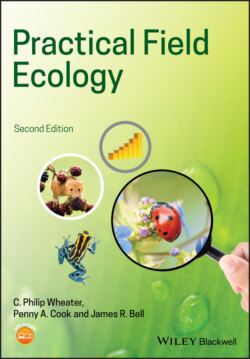Читать книгу Practical Field Ecology - C. Philip Wheater - Страница 33
Search terms
ОглавлениеThe best way to locate relevant papers is to systematically search journals using your library's electronic databases using key words. The use of targeted search terms can identify appropriate works and avoid too many articles or irrelevant papers from being selected. First, identify a list of key words or phrases that could be included in the title, abstract, or key words of an article. Begin by using simple combinations of terms (e.g. woodland beetles, hedgerow birds). If you are finding too many papers, then either restrict your search to more recent publications or use more complicated combinations (e.g. by adding ‘predation’ to the key terms ‘woodland beetles’ you can significantly reduce the number of articles returned by a search). Note that most databases allow wildcard entries (e.g. an asterisk) to truncate key works (so that space, spaces, and spatial can all be covered by spa*), although such terms can increase irrelevant returns (e.g. spa* will also cover any word beginning with spa; e.g. Spain, Spanish, etc.). You can use Boolean operators to refine your search and reduce the number of irrelevant works identified. For example, the search ‘woodland beetles’ OR ‘hedgerow birds’ will select those papers which have either ‘woodland beetles’ or ‘hedgerow birds’ in the title, abstract, or key words. Conversely, the search ‘beetles’ AND ‘predation’ will select only papers with both terms in them. Once appropriate papers have been acquired, you can use them to find others of interest in two ways. First, you can examine the literature that the paper cites to see if any older works are relevant. Second, you can use most search engines (e.g. Google Scholar) to identify those works that come after the paper in question and have cited it. If you have access to a librarian, they can help you to set up a search. This search can be saved and re‐run during your project so that you can detect any new papers published whilst you have been carrying out your research.
